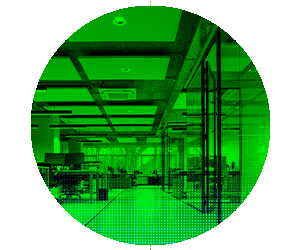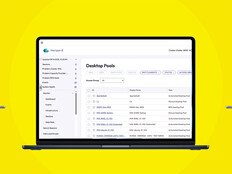“By embracing technology, nonprofits can better meet their mission goals, save time and money, attract new donors and volunteers, and open up new ways to engage with the community,” Kate Dobson, head of strategic academic partnerships and employer-led education at London’s University of Roehampton, tells Forbes. But considering their financial constraints, many nonprofits still struggle to integrate emerging technologies into their workflows.
That’s why many nonprofit IT leaders are turning to Device as a Service (DaaS). With this subscription-based model, businesses lease devices such as laptops, smartphones and tablets and bundle them with services such as maintenance, support and software management. Instead of purchasing hardware outright, companies pay a monthly fee for access to the latest technology, along with services including updates, repairs and replacements. This model helps reduce upfront costs, simplifies IT management, and ensures devices are regularly updated and secured.
DISCOVER: Get the nonprofit technology solutions that support your business.
DaaS is gaining global traction. Valued at nearly $28 billion last year, it is projected to reach about $227 billion by 2032, according to Fortune Business Insights. The service allows businesses to access state-of-the-art devices without the burden of large outlays, ensuring that personnel have access to reliable, high-performance tools that best bolster productivity and efficiency. And, since DaaS helps teams run regular updates and maintenance, it also minimizes downtime and frees up internal resources.
Here are some of the advantages nonprofits can gain with DaaS.
Click the banner below to learn how nonprofits can overcome IT challenges with Device as a Service.


DaaS Offers Nonprofits More Mobility and Collaboration
The recent rise of hybrid and remote work isn’t limited to for-profit organizations. The National Council of Nonprofits notes that over 50% of nonprofit jobs are now hybrid or fully remote. This means advanced mobility and collaboration capabilities are necessary if nonprofits are to maximize their operational efficiency.
DaaS supports this hybrid and remote trend. Nonprofits using DaaS can equip their teams with the latest laptops, tablets and mobile devices without having to go over budget. And with DaaS, devices will always be up to date with the latest software and security patches.
Under this subscription model, nonprofits can collaborate in real time and access essential resources from anywhere.
$227 B
The projected approximate value of the Device as a Service market by 2032
Source: Fortune Business Insights, “Device as a Service (DaaS) Market Size, Share & Industry Analysis, 2024-2032,” Aug. 19, 2024
DaaS Supports Data-Driven Decision Making
DaaS also helps nonprofits perform comprehensive data collection and analysis more simply, which gives IT better insights to make decisions.
“If applied appropriately, quantitative decision-making improves operational efficiencies and effectiveness by increasing revenue, decreasing expenses and improving productivity,” writes Jennifer Paquette, director of nonprofit markets and portfolios at Exponent Partners, in Forbes. “Utilizing data helps nonprofits understand donor behavior, program performance and budget accuracy. Utilizing data also allows for wiser decision-making for organizations that generally have very limited resources and unlimited needs to fill.”
DaaS helps make this happen, providing access to powerful hardware that supports sophisticated data management tools. In this way, it helps organizations make more informed decisions, track program outcomes, and demonstrate impact to stakeholders and funders.
RELATED: Learn why IT managed IT services let you focus on growth.
Improved Donor Engagement and Fundraising
Nonprofits generally rely on charitable giving in order to keep their doors open, and giving can fluctuate over time. However, for nonprofits that leveraged artificial intelligence chatbots and machine learning in their CRM systems, virtual fundraising channels and personal communications may see better results. For nonprofits who view generative AI as an invaluable tool but are not sure how to implement it, DaaS can help.
DaaS makes it easy and affordable for nonprofits to embrace cutting-edge technology that they may be unable to acquire otherwise. In this way, DaaS can help nonprofits enhance donor experiences, streamline fundraising campaigns and increase donor retention.
jacoblund / getty images











